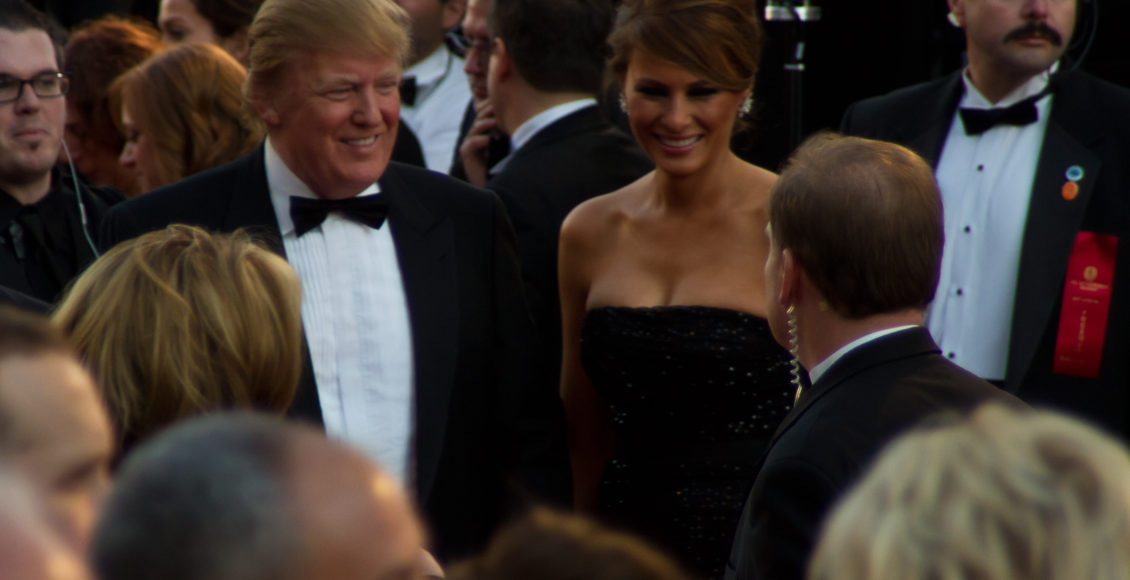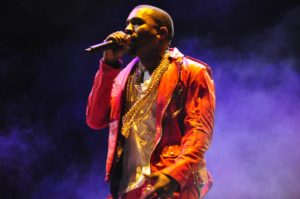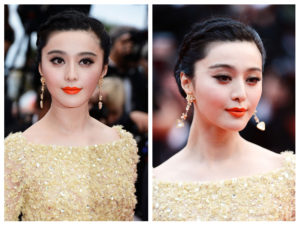Red Carpet Politicians

The last four years have marked, particularly in North America, a blurring of the lines between celebrity and politician. In the US, Donald Trump was elected on a campaign of notoriety. In Canada, Justin Trudeau’s election was followed by a flurry of press coverage typically garnered by movie stars and boy band members. Conversely, the recent political spotlight on celebrities has been unprecedented; simultaneously pressuring celebrities to be politically expressive, and criticizing when they are. The distinction between celebrity and politician has always been a fine line. Ronald Reagan was a Hollywood actor before turning to politics, and certain politicians, JFK for example, have experienced the kind of frenzy and following more often seen with celebrities than politicians., Notably, famous people have used their fame to further political causes in the past. For instance, at the 1973 Oscars ceremony, Marlon Brando sent Sacheen Littlefeather, to attend in his stead and declined to accept his Oscar for best actor for the godfather, citing mistreatment of Native Americans in the film industry as his reason. However since then, celebrity expressions of political views have become the norm, not the exception. When Taylor Swift urged fans to vote for Democrats in the 2018 midterm election, news sources ran headlines stating that Swift had “finally” broken her silence on politics. There is now an expectation that celebrities will express political views.
The celebrity/politician distinction takes another interesting form that has been important to politics around the world recently. Besides political endorsement, politicians have been using celebrities to dominate the news cycle, create an example of punishment for illegal behavior and provide legitimacy to illegitimate rule.
Kanye West’s meeting with Donald Trump on October 11 covered the main page of news sites from the New Yorker to Buzzfeed. SNL parodied the meeting for their cold open two days later. The image of West in a red Make America Great Again hat, hugging Trump in the oval office was instantly iconic. It was bizarre in the way only an image from 2018 can be, being so far from grounded in what we previously expected from the presidency and, of course, from Kanye West. Presidents, particularly in the television era, have always mingled in celebrity circles, captured in posed photos at events and performances. However, a meeting open to dozens of reporters to discuss economic development, policing and public policy with a rapper notorious for his controversial opinions and behavior, felt like something new. It felt like much of Trump’s presidency: spectacle for spectacle’s sake. The meeting’s allure was amplified by the many parallels between the two powerful, and unpredictable, men, as well as one marked difference between them.

Why Trump would have such a largely publicized meeting with such an infamous and unqualified celebrity is both simple and rather complicated. Firstly, he did it for the reason Trump does most things: so it would be talked about. Since the start of his campaign, Donald Trump’s strategy has involved generating such discussion about his behavior, that one thing cannot be focused upon. With midterms imminent and an extremely controversial Supreme Court nomination not far behind him, a meeting with Kanye West promised to dominate the news cycle with a story of little to no substance. In some ways, Trump’s play succeeded beyond his wildest dreams, because after West’s barely comprehensible rant about masculinity and super powers, Trump actually looked like the sane one.
On the other hand, though the meeting was substance-less in terms of real policy implications, it was about something very real: race in America. What makes West’s support of Trump so unusual is that he is a black man, eighty-two percent of whom voted for opposing council, Hillary Clinton. Perhaps West is simply overlooking Trump’s track record of comments on race in favor of their similarities in personality and contrarianism. However, Trump’s comments about African Americans may actually be what drew Kanye to him. West’s recent flurry of controversial statements included a rant on TMZ in which he claimed that slavery was a choice, implying a dramatic shift in the way West views race in America. Trump’s motivation for having a public conversation with West about race related topics is much clearer. It is the classic “I’m not racist, I have a black friend” move. With a single, extremely visible example, Trump hopes to provide a counter argument to copious racial indiscretions, that include allegations ranging from racial bias against Trump’s real estate company, to tape recording of Trump saying the n word. While no citizen who already believed Trump to be a racist will be convinced otherwise by his meeting with West, Trump actually just needs to give an out to his supporters who already want a reason to believe him. West’s fame gives him exactly that.
Chinese actress Fan BingBing.
Today’s age of hypervisibility and the cult of the celebrity means Trump is not the only world leader to harness celebrity power for political gain. In another superpower nation, Fan Bingbing is the largest Chinese movie star. Her fame is comparable to Angelina Jolie, except she makes even more money. On July 1, Fan Bingbing disappeared. For three months, she was completely gone from the public eye. Her disappearance followed accusations of tax fraud, and was accompanied by wild theories from the public that ranged from torrid affairs with communist party members, to arrest or even flight from China. Then she resurfaced with a public statement on her account on Weibo, a popular Chinese social media site. The statement included both an admittance of underreporting her earnings so as to tax evade, and an apology lamenting that “Without the great policies of the [Chinese Communist] Party and the country, without the love of the people, there would be no Fan Bingbing,” and that she has “failed” her country. A scripted public apology of this nature, following a secret detention, marks a decided shift in Chinese communist party treatment of the rich and famous, and perhaps a return to the more authoritarian tactics of China’s past. Xi Jinping used Fan Bingbing’s extreme visibility to make a public statement: even the rich must follow the rules of the party. Tax evasion is not an uncommon crime in a country with enormous growth in the last decade and a class of people so rich they are essentially above the law. Fan allowed Xi to make a dramatic statement about the direction of the party and the country as a whole.
Another example of politicians using celebrities demonstrates the way in which celebrities can be used to promote a cult of personality. Ramzan Kadyrov, a Chechen separatist turned Putin supporter, has ruled Chechnya for over ten years. During this time, he has been one of Putin’s most valued strongmen and grown his own cult of personality through a reputation as a man of the people, a savior of the weak and a strong leader capable of getting what he wants through bullying and bribing. Kadyrov, called King by his inner circle, has had a rule rife with human rights abuses, and LGBTQ persecution. A large part of his cult of personality is contingent upon his macho-man appearance; a warrior king and a fighter in his own right. This image is cultivated through association with celebrity, specifically, UFC fighters. Kadyrov has hosted countless UFC fighters such as former champions Frankie Edgar, Frank Mir, Chris Weidman, Alexander Gustafsson and current UFC lightweight champ Khabib Nurmagomedov in Chechnya. Other celebrities and athletes he has hosted include Floyd Mayweather, Jean-Claude Van Damme and Hillary Swank. Akhmat is his very own fight club, payed for through the government budget and run by Abuzayed Vismuradov, an extremely powerful member of Kadyrov’s inner circle. Thus, Kadyrov utilises the amalgamation of sports and politics to create an image of himself as the ideal, strong Chechan man, and as a man of the people. He is a warlord, he rules based on force. Through association with symbols of strength and masculinity, he cements his personal clout.
Kadyrov’s use of sports celebrities for political gain is so prominent that he came under criticism after the 2018 FIFA world cup, when a photo of Kadyrov with Mohammad Salah, an Egyptian soccer player, was described by Amnesty International as “pure sportwashing”. In this case, Kadyrov’s use of sports celebrities transgressed beyond national boundaries when he attempted to use an image of himself with a famous soccer player to distract from international criticism of his regime’s human rights abuses.
Evidently, celebrities can be a powerful tool of soft power for world leaders. They are the human embodiment of their demographics and achievements. As such, they can be used to distract from a leader’s true relationship with that demographic, or to demonstrate a new policy towards that demographic. However, Kanye West is not the average African-American voter and taking a photo with him will not endear Trump to African-American voters, not like a real approach to actual issues would. Fan Bingbing is like no other wealthy Chinese citizen and it is unlikely that her detainment will significantly affect tax fraud in China, which truly requires continued prosecution of the wealthy class. For a LGBTQ person in Chechnya, no picture of Kadyrov with a soccer star will make them forget about the hunt and confinement of gay men in concentration camps. Thus, statements made by politicians leveraging celebrities are inherently hollow because once the red carpet is over, the glamour fades and nothing has changed.
Edited by Shaista Asmi

